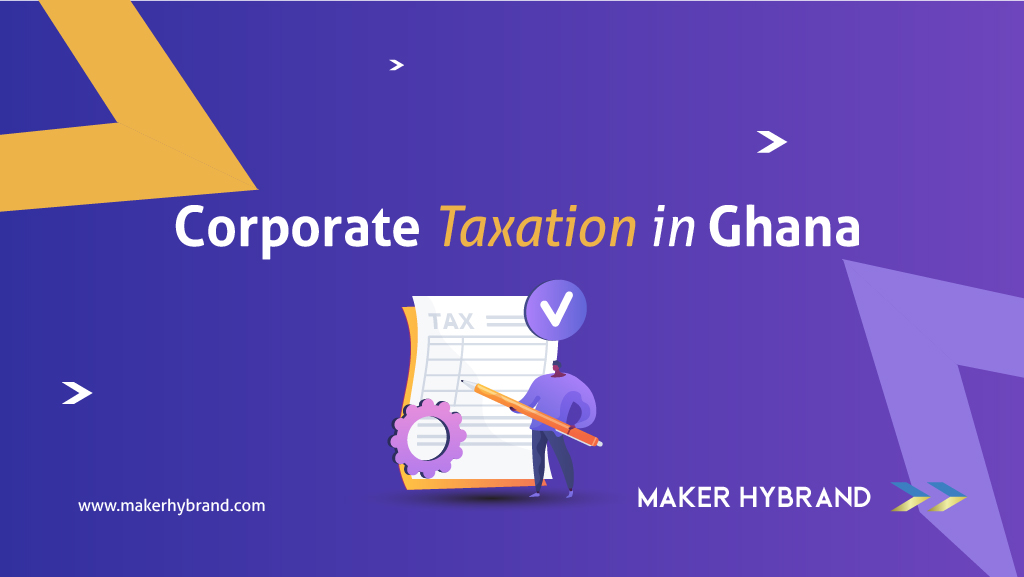Corporate taxation plays a vital role in the economic growth and development of any nation, including Ghana. It is essential for businesses operating in Ghana to have a thorough understanding of the corporate tax rates, regulations, incentives, and tax planning strategies in order to navigate the tax landscape effectively. In this blog post, we will provide an overview of corporate tax rates and regulations in Ghana, explore the tax incentives available for businesses, and discuss tax planning strategies that can help minimize corporate tax liabilities.
Corporate Tax Rate:
In Ghana, the corporate tax rate for resident companies is 25% of assessable profits. Non-resident companies are subject to a flat rate of 20% on income derived from Ghanaian sources. It is important to note that capital gains are also taxed as part of the corporate tax regime in Ghana.
Fiscal Year:
The fiscal year in Ghana runs from January 1st to December 31st. Companies are required to file their tax returns within four months after the end of the fiscal year.
Transfer Pricing Regulations:
Ghana has transfer pricing regulations in place to ensure that transactions between related parties are conducted at arm’s length. These regulations aim to prevent profit shifting and ensure fair taxation.
Thin Capitalization Rules:
Thin capitalization rules restrict the tax deductibility of interest expenses on loans from related parties. The current thin capitalization rule in Ghana limits the interest expense deduction to a debt-to-equity ratio of 3:1.
Tax Incentives for Businesses in Ghana
To promote investment and economic growth, the Ghanaian government has implemented several tax incentives for businesses operating in the country. Some of the key incentives include:
- Free Zones Incentives:
Companies operating within designated free zones in Ghana can enjoy a range of tax incentives, including exemption from corporate tax on profits generated within the free zone for the first ten years of operation.
- Pioneer Status Incentives:
The government grants pioneer status to specific industries to encourage investment and development in those sectors. Companies with pioneer status are eligible for corporate tax holidays ranging from five to ten years.
- Investment Allowances:
Certain industries, such as manufacturing, agriculture, and tourism, are eligible for investment allowances. This incentive allows businesses to deduct a percentage of their qualifying capital expenditure from their assessable income.
Tax Planning Strategies for Minimising Corporate Tax in Ghana
While businesses are required to pay their fair share of taxes, it is important to explore legitimate tax planning strategies to minimise corporate tax liabilities within the boundaries of the law. Here are a few strategies:
- Capital Expenditure Planning:
By strategically planning capital expenditures, businesses can take advantage of investment allowances and other tax incentives. Investing in qualifying assets can help reduce taxable income and lower the overall tax burden.
- Transfer Pricing Documentation:
To comply with transfer pricing regulations, businesses should maintain proper documentation to support their related-party transactions. This includes maintaining transfer pricing policies, conducting benchmarking studies, and keeping records of transactions.
- Loss Utilization:
Ghana allows businesses to carry forward tax losses for up to five years. Properly utilizing these losses can help offset future taxable income and reduce tax liabilities.
- Structuring:
Careful consideration of the legal and corporate structure can help optimise tax planning. For example, businesses can explore the benefits of forming a subsidiary or establishing a regional headquarters in Ghana, taking advantage of tax incentives and treaties.
Corporate taxation in Ghana is governed by specific regulations, tax rates, and incentives designed to foster economic growth and attract investment. Understanding these aspects is crucial for businesses operating in Ghana to ensure compliance, optimize tax planning strategies, and minimize tax liabilities. By staying informed and working with tax professionals, businesses can navigate the corporate tax landscape effectively and contribute to the sustainable development of Ghana’s economy.



